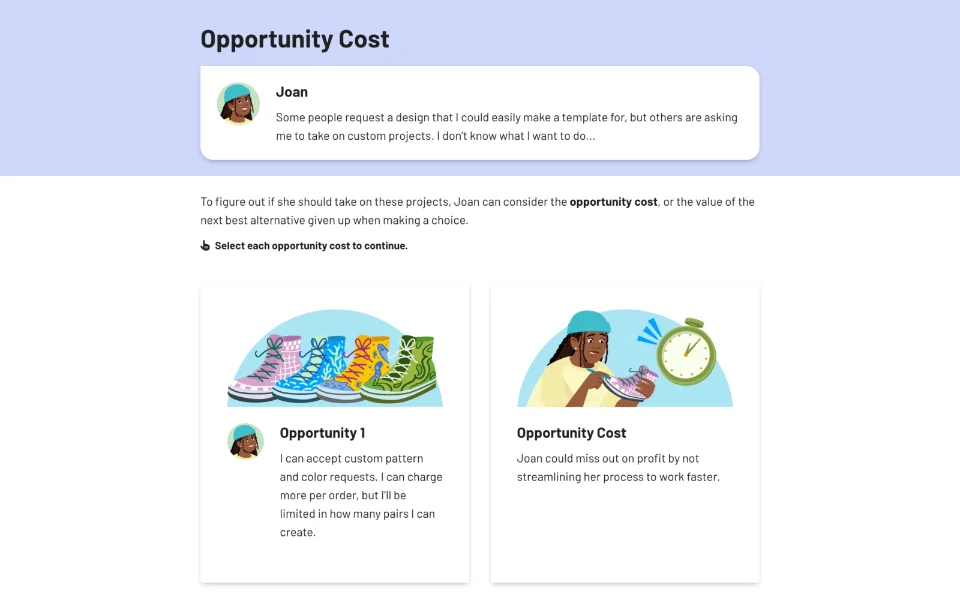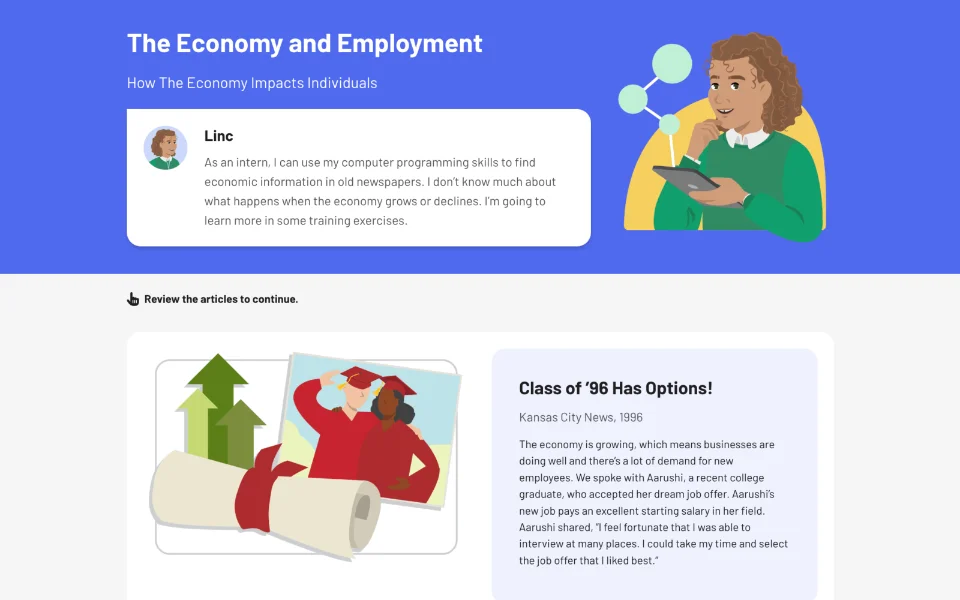Financial Education
Econ Foundations: Economics for High School
- Macroeconomics
- Microeconomics
- The Basics
Why Adopt This Course?
This new financial education course explores how economic systems function, and the impact these systems have on individuals, businesses, governments, and the world. Students explore the ways in which economic information is used to make decisions and form strategies. The course begins with an overview of broad economic concepts before examining how money, goods, and services flow and the role that the government has in stabilizing the economy using fiscal and monetary policy.
At-A-Glance
Grade Level
9th, 10th, 11th, 12thLength
3 digital lessons, 15 min
Languages
Standards
Jump$tart National Standards in K–12 Personal Finance Education and CEE Voluntary National Content Standards in Economics
Curriculum Fit
Economics, Business, Social Studies, and Career Readiness
Students gain a basic understanding of economic concepts such as supply and demand, scarcity, and opportunity costs.

Students explore the ways in which the flow of the economy works to support market structures in microeconomics.

Students discover how economic indicators are used to determine which phase the economy is in and whether it is growing or declining.

-
Less than a third of high school juniors and seniors reported that they felt prepared to compare financial institutions and select one that best meets their needs (32%). Slightly more students — but still less than half (47%) — felt they could select, open, and manage a savings or checking account.
Young people also reported low levels of confidence in their ability to establish financial habits that contribute to long-term financial wellbeing: budgeting and managing credit. Half of juniors and seniors said they were “prepared” or “very prepared” to set up and follow a budget, while just a third (32%) felt they could check their credit and maintain good credit over time.
These skills budgeting and managing credit – are essential as young people move toward financial independence. The decisions they make in the next one to two years begin to carry consequences that can last much longer, directly impacting their lifetime financial wellbeing.
-
Yes, given the critical role of skill and confidence in building financial wellbeing, the low levels of preparedness among young people could be a sign of trouble as students finish high school and move toward financial independence.
-
Students learn the fundamentals of money management in financial literacy classes, including budgeting, saving, paying off debt, investing, and more. This information offers the groundwork for kids to establish sound financial practices at a young age and steer clear of many mistakes that result in ongoing financial difficulties.
Why Everfi?
Everfi empowers educators to bring real-world learning into the classroom and equip students with the skills they need for success-now and in the future. Our curriculum and courses are:
- Loved by 750,000+ teachers
- Aligned to US, Canada, and UK learning standards.
- Real-world lessons that are self-paced and interactive.
- Automatically graded with built-in assessments and reporting.
- Extendable with activities and resources to bring the information to life.
- Supported with a dedicated, regional team.
- Forever free for K-12 educators.
How Are These Lessons Free?
Thanks to the generous sponsorship of corporations who share our mission, Everfi’s courses are completely free to teachers, districts, and families
This course is made possible through partnerships with community-focused financial institutions who invest in student financial literacy. That’s why everything—curriculum, training, and support—is completely free to educators.
